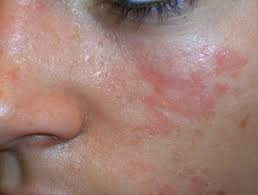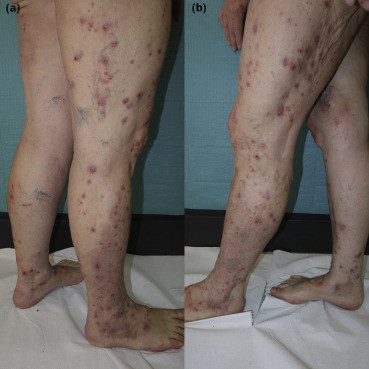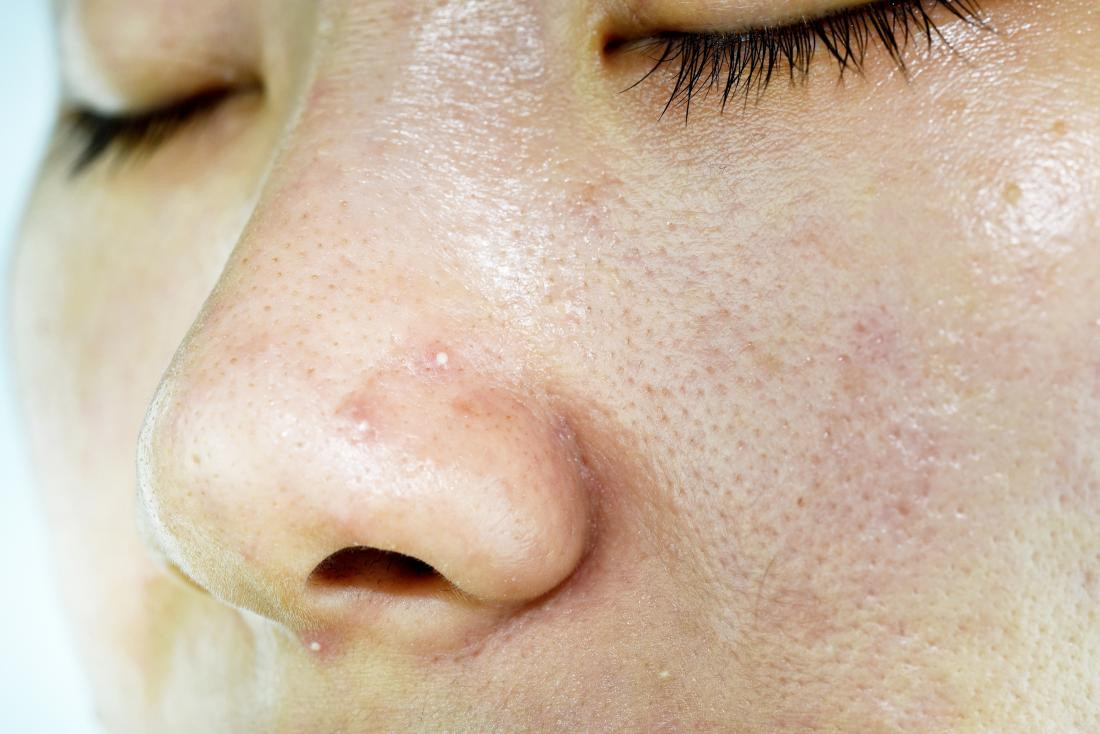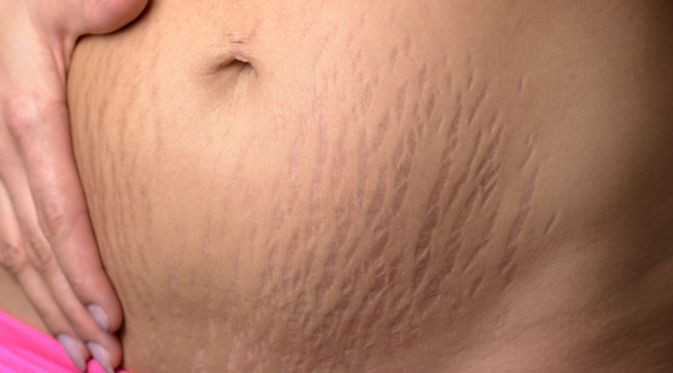Definisi
Kulit sensitif merupakan suatu kondisi kulit yang lebih rentan terhadap reaksi peradangan seperti kemerahan dan gatal. Kebanyakan orang yang memiliki kulit sensitif sering merasa gatal, terbakar, dan perih di kulit. Penderita kulit sensitif biasanya memiliki toleransi yang kurang baik terhadap penggunaan kosmetik dan produk perawatan pribadi tertentu. Penggunaan bahan kimia, zat pewarna, dan wewangian yang terkandung dalam produk tertentu yang bersentuhan langsung dengan kulit juga mungkin menimbulkan reaksi lokal pada penderita kulit sensitif. Pemicu timbulnya peradangan pada kulit sensitif antar individu mungkin berbeda-beda. Kondisi ini cukup umum terjadi dan diperkirakan sebanyak 50% wanita dan 40% pria mungkin memiliki kulit sensitif. Meskipun jarang terjadi, kulit sensitif terkadang bisa menjadi pertanda suatu kondisi medis lain yang lebih serius, seperti penyakit ginjal.
Kulit sensitif secara umum dapat dibagi menjadi empat jenis, yaitu:
- Kulit sensitif secara alami. Jenis ini umumnya bersifat genetik dan dapat dikaitkan dengan kondisi kulit lain yang meradang, seperti eksim, rosacea, dan psoriasis.
- Kulit sensitif terhadap lingkungan. Seperti namanya, jenis sensitivitas ini dipicu oleh lingkungan sekitar Anda. Paparan sinar matahari, asap rokok, polusi udara, atau apapun yang bersentuhan dengan kulit Anda dapat menimbulkan reaksi peradangan pada kulit Anda.
- Kulit yang reaktif. Jenis kulit ini menjadi merah dan meradang akibat penggunaan produk perawatan kulit tertentu, menyebabkan kulit yang sangat merah, hangat, dan teriritasi. Selain itu, seringkali akan timbul bintil (papula) atau bintil berisi nanah (pustula) yang terbentuk di tempat terjadinya iritasi kulit.
- Kulit tipis. Seiring bertambahnya usia, kulit Anda secara alami akan menjadi lebih tipis, dan kulit yang lebih tipis akan lebih mudah teriritasi.
Penyebab
Kulit sensitif disebabkan oleh ujung saraf di lapisan atas kulit yang teriritasi. Iritasi pada ujung saraf terjadi ketika lapisan penghalang alami kulit (skin barrier) menjadi lemah atau rusak oleh pemicu tertentu. Beberapa pemicu yang dapat menimbulkan iritasi pada kulit sensitif, antara lain:
- Sinar matahari
- Angin/cuaca
- Cuaca atau udara panas
- Cuaca atau udara dingin
- Penggunaan produk tertentu yang dioles langsung pada kulit (produk topikal), seperti produk perawatan kulit (skin care), sabun, deterjen, dan pewangi
- Gangguan hormon
- Kurang tidur
- Polusi udara
Faktor Risiko
Beberapa faktor yang dapat meningkatkan risiko Anda memiliki kulit yang sensitif, meliputi:
- Memiliki gangguan kulit atau reaksi alergi kulit tertentu. Kulit sensitif mungkin menjadi tanda dari adanya suatu gangguan kulit lain yang mendasarinya, seperti:
- Eksim/ dermatitis, yaitu radang pada kulit.
- Rosacea, yaitu penyakit kulit yang menyerang wajah dengan tanda awal termasuk kulit yang lebih mudah memerah daripada orang lain.
- Dermatitis kontak alergi, yaitu radang pada kulit yang disebabkan oleh adanya kontak dengan zat tertentu sehingga memicu reaksi alergi pada kulit.
- Dermatitis kontak iritan, yaitu radang pada kulit yang disebabkan oleh adanya kontak dengan zat iritan tertentu sehingga menimbulkan iritasi pada kulit.
- Urtikaria, atau biduran, yaitu kondisi dimana timbulnya reaksi kulit yang meninggi dibandingkan permukaan kulit sekitar disertai rasa gatal akibat reaksi alergi terhadap paparan zat tertentu.
- Pruritus aquagenic, yaitu suatu kondisi langka yang menyebabkan air yang bersentuhan langsung dengan kulit menimbulkan reaksi gatal.
- Kulit kering, di mana kandungan air dan minyak pada kulit terlalu sedikit.
- Fotodermatosis, yaitu suatu reaksi abnormal kulit akibat paparan sinar matahari.
- Kutaneus mastositosis, yaitu suatu kondisi dimana terdapat terlalu banyak akumulasi sel mast (sel yang berfungsi menimbulkan reaksi alergi) pada kulit.
- Memiliki kulit yang terlalu kering atau terluka yang tidak dapat lagi melindungi ujung saraf pada lapisan atas kulit sehingga dapat menimbulkan reaksi kulit.
- Paparan berlebihan terhadap faktor lingkungan yang dapat merusak kulit, seperti sinar matahari, angin, cuaca panas atau dingin yang berlebihan.
- Faktor genetik, usia, jenis kelamin, dan perbedaan ras dalam sensitivitas kulit kurang terbukti dengan baik, tetapi masih mungkin berperan dalam menyebabkan reaksi kulit pada kulit yang sensitif.
Gejala
Gejala-gejala kulit sensitif muncul sebagai akibat dari rusaknya lapisan penghalang/pelindung kulit (skin barrier) Anda. Hal ini dapat disebabkan oleh beberapa pemicu, seperti lingkungan, dehidrasi, atau kondisi lain yang mendasarinya. Kulit sensitif dapat menyebabkan tanda-tanda objektif dan gejala subjektif. Tanda-tanda objektif adalah perubahan fisik yang dapat diamati oleh dokter, seperti:
- Bercak di kulit yang kasar dan bersisik
- Kulit yang berkeriput atau bertekstur kasar
- Kemerahan pada kulit
- Pembengkakan pada kulit
- Luka terbuka atau koreng berwarna kuning di atas kulit
- Kulit yang mengelupas
- Kulit yang kering
- Timbul ruam atau benjolan di kulit
Sementara itu, gejala subjektif mengacu pada perasaan yang dapat ditimbulkan akibat kulit sensitif, seperti:
- Rasa gatal
- Sensasi terbakar pada kulit
- Nyeri
- Rasa perih
- Rasa tidak nyaman pada kulit
Seringkali, keluhan kulit sensitif hanya terjadi pada wajah. Selain itu, kelopak mata juga sangat sensitif terhadap penggunaan produk-produk tertentu. Ketiak, selangkangan, dan alat kelamin mungkin juga lebih sensitif dibandingkan area lain karena memiliki kulit yang lebih tipis.
Diagnosis
Dalam mendiagnosis kulit sensitif, dokter akan mulai dengan melakukan wawancara dengan Anda. Beberapa pertanyaan yang mungkin diajukan dokter, antara lain:
- Di bagian tubuh mana Anda mengalami kulit yang sensitif?
- Apakah ada kerabat dekat/keluarga Anda yang memiliki kulit sensitif?
- Berapa lama Anda merasakan gejala kulit sensitif?
- Apakah ada hal yang dapat mengurangi gejala atau membuatnya lebih baik?
- Apa yang membuat gejala lebih buruk?
- Jenis produk kosmetik dan deterjen cucian apa yang Anda gunakan di rumah?
- Apakah kulit Anda terpengaruh oleh perubahan cuaca?
Selain itu, dokter juga akan mencari faktor-faktor risiko yang mungkin berperan terhadap timbulnya kulit sensitif, seperti mencari adakah penyakit kulit lain yang mendasarinya. Selanjutnya, dokter akan melakukan pemeriksaan fisik dengan melihat langsung kondisi kuilt yang terkena. Pada dasarnya, diagnosis kulit sensitif dapat ditegakkan berdasarkan hasil wawancara dan pemeriksaan fisik. Jika dicurigai terdapat gangguan kulit lain yang mendasari timbulnya kulit sensitif, dokter mungkin akan menyarankan pemeriksaan penunjang tertentu sesuai kecurigaan penyakit tersebut.
Tata Laksana
Tata laksana kulit sensitif biasanya dengan menemukan dan menghilangkan pemicu, serta menggunakan pengobatan rumahan atau obat resep untuk mengobati gejalanya:
- Pengobatan di rumah
Beberapa pengobatan rumahan juga dapat membantu mengobati atau mencegah gejala kulit sensitif, termasuk:
-
- Pelembap dan losion hypoallergenic dapat mengurangi kekeringan tanpa mengiritasi kulit sensitif. Beberapa bahan mungkin bekerja lebih baik daripada yang lain, tergantung pada jenis sensitivitasnya. Misalnya, penderita dengan kulit yang sangat kering dapat merespon dengan baik bahan-bahan seperti urea atau asam laktat. Beberapa minyak sederhana, seperti shea butter atau minyak kelapa, mungkin bekerja lebih baik untuk orang lain.
- Oatmeal mungkin sangat membantu bagi orang dengan kulit sensitif. Penelitian menunjukkan bahwa mengoleskan oatmeal ke kulit dapat membantu gejala seperti ruam, kulit kering, dan eksim. Oatmeal efektif karena dapat meningkatkan penghalang kulit (skin barrier) dan tidak hanya mengobati gejalanya.
- Perawatan medis
Tergantung pada penyebab kulit sensitif dan gejala yang menyertainya, dokter mungkin meresepkan beberapa obat yang berbeda, seperti:
-
- Krim steroid, seperti krim steroid yang dijual bebas (OTC) dan yang diresepkan dokter seperti hidrokortison, dapat membantu meredakan peradangan dan gatal. Obat ini tidak boleh digunakan di wajah.
- Krim analgesik, dapat menimbulkan mati rasa dan membantu mengurangi rasa gatal, yang dapat membuat orang tersebut cenderung tidak menggaruk atau mengiritasi area tersebut.
- Antihistamin, seperti diphenhydramine, dapat membantu meredakan reaksi alergi.
- Tabir surya (sunscreen), dengan faktor perlindungan matahari (SPF) 30 atau lebih tinggi dapat membantu melindungi kulit sensitif dari sinar ultraviolet (UV).
Komplikasi
Kulit sensitif dapat menimbulkan rasa gatal sehingga penderitanya cenderung akan menggaruknya. Menggaruk dalam waktu yang lama dapat menyebabkan infeksi kulit. Iritasi dan perdarahan jangka panjang juga bisa terjadi akibat dari menggaruk kulit yang teriritasi.
Pencegahan
Beberapa langkah yang dapat dilakukan untuk mencegah timbulnya gejala kulit sensitif, antara lain dengan:
- Mandi dengan durasi yang lebih pendek dan kurang dari 10 menit
- Hindari menggunakan air yang sangat panas untuk mandi dan mencuci tangan
- Menghindari produk dengan wewangian yang keras, deterjen, atau bahan kimia lainnya
- Menggunakan produk, seperti sabun, deodoran, dan deterjen yang bebas pewangi dan hipoalergenik
- Menghindari cairan pembersih kimia yang keras
- Menepuk daripada menggosok tubuh sampai kering sehabis mandi
- Menguji produk baru pada area kecil kulit sebelum menerapkannya ke area yang lebih luas
Kapan Harus ke Dokter ?
Kuilt sensitif merupakan kondisi yang cenderung berulang dan mungkin disebabkan oleh gangguan kulit lain yang mendasarinya. Maka dari itu, disarankan untuk konsultasi dengan dokter agar dapat mencari penyebab dan pemicu dari timbulnya kulit sensitif.
Mau tahu informasi seputar penyakit lainnya? Cek di sini, ya!
- dr Nadia Opmalina
Dancer, Rebecca, et al. Everything You Need to Know for Identifying and Treating Sensitive Skin. Retrieved 10 Mei 2022, from https://www.allure.com/story/what-is-sensitive-skin
Dyall-Smith, Delwyn. Sensitive Skin. (2009). Retrieved 10 Mei 2022, from https://dermnetnz.org/topics/sensitive-skin
Gardner, Stephanie S. 20 Common Questions About Sensitive Skin. (2020). Retrieved 10 Mei 2022, from https://www.webmd.com/beauty/sensitive-skin-20-questions
Johnson, Jon. Sensitive Skin: Home Remedies and Prevention. (2021). Retrieved 10 Mei 2022, from https://www.medicalnewstoday.com/articles/sensitive-skin#seeing-a-doctor
Madormo, Carrie. What Is Sensitive Skin?. (2020). Retrieved 10 Mei 2022, from https://www.verywellhealth.com/what-is-sensitive-skin-5085561
Osborne, Corinne O’Keefe. What Causes Sensitive Skin and How Can I Care for It?. (2019). Retrieved 10 Mei 2022, from https://www.healthline.com/health/skin-disorders/sensitive-skin#see-your-doctor












